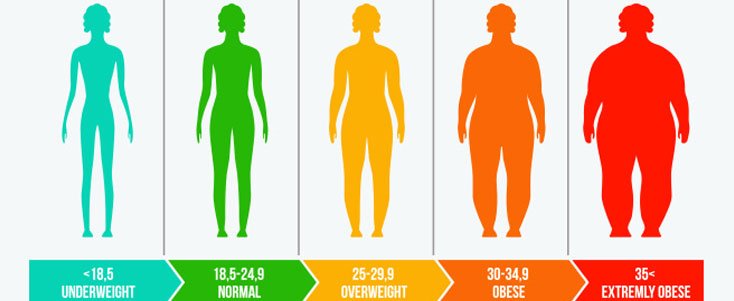Are Your Genes Making You OBESE

Have you ever thought - some people who can eat ice cream, cake, and whatever else they want and still not gain weight; and there are some who seem to gain weight by even looking at food. Why does that happen? Why can one person remain thin without any effort but another has to struggle to avoid gaining weight?
Simply speaking, your weight depends on the calories you consume, the amount of calories you store, and the amount you burn up. However, all of these factors are influenced by your genetics. Your genetics affects your physiology as well as your behavior. Your genetics are determined at the moment of your conception and continue throughout your life.
What are the causes of obesity?
Obesity is defined as an abnormal build-up of fat that affects your health in a negative way. Your DNA/genes contribute to the causes of obesity in various ways - it influences your appetite, food cravings, satiety, metabolism, fat distribution, and the tendency of stress-eating. Having knowledge of what role your genes play in your weight can be helpful in treating your weight issues. In case both of your parents have obesity, your likelihood of developing obesity increases to 80%.
How to know if you have an unhealthy weight?
Obesity is calculated using the Body Mass Index (BMI). It is a calculation that divides your weight (in kilograms) by the square of your height (measured in meters). The resulting number serves as an indirect readout of your body mass-the relative proportions of fat, muscle, and bone in your body. BMI varies with age, gender, pregnancy, and more importantly genetics. Your BMI is important for assessing how much fat you have and how much fat you need to lose.
Obesity increases your risk of certain diseases, like:
- Hypertension
- Insulin resistance
- Diabetes
- Cardiovascular disease
- Stroke
- Dyslipidemia
- Breathing trouble
- Obesity
You can lose weight by following a diet and exercise routine based on your DNA
There are multiple genes that are associated with obesity and knowing them can help in determining if you are genetically predisposed to having a higher fat content. Your genetic factors have a direct influence on your appetite as they regulate your hormones and activities of fat cells that affect how your body utilizes or metabolizes fat. The higher your genetic risk for obesity, the more your chances of developing related physiological complications. Along with your genetic risk, if your lifestyle and food habits are unhealthy, then early onset of some diseases are inevitable.
Personalizing your weight management is the best way to lose weight
DNA tests like DNAwise can check various genetic factors that influence your weight. Learning about how genes impact your food and fitness can help you eliminate the chances of guesswork and plan a smart approach towards being healthy. Weight management goals become very clear by understanding your genetic factors related to BMI and that also yields new insights on population obesity epidemics. Eating and exercising in sync with your DNA can work wonders. To create a personalized weight loss plan, book a DNAwise Test Kit.
